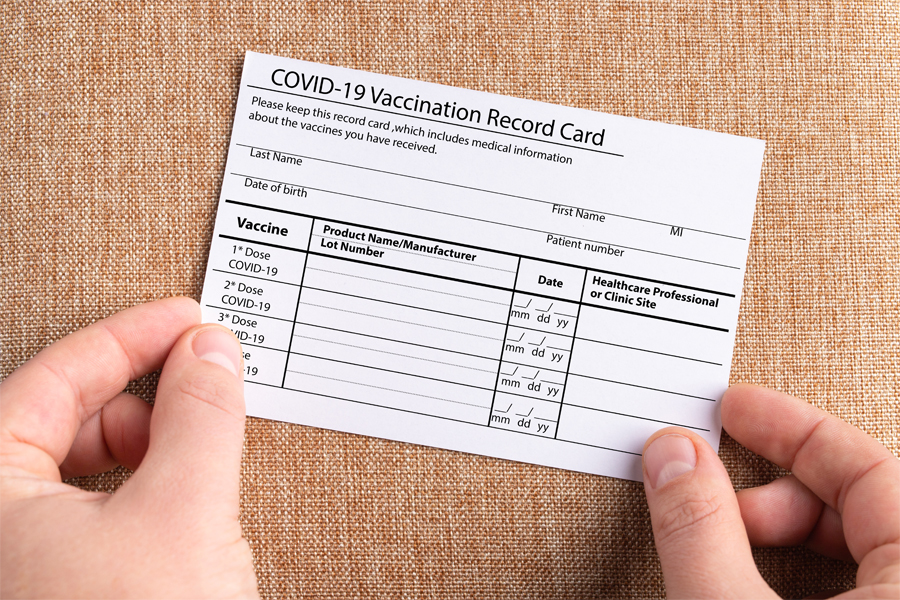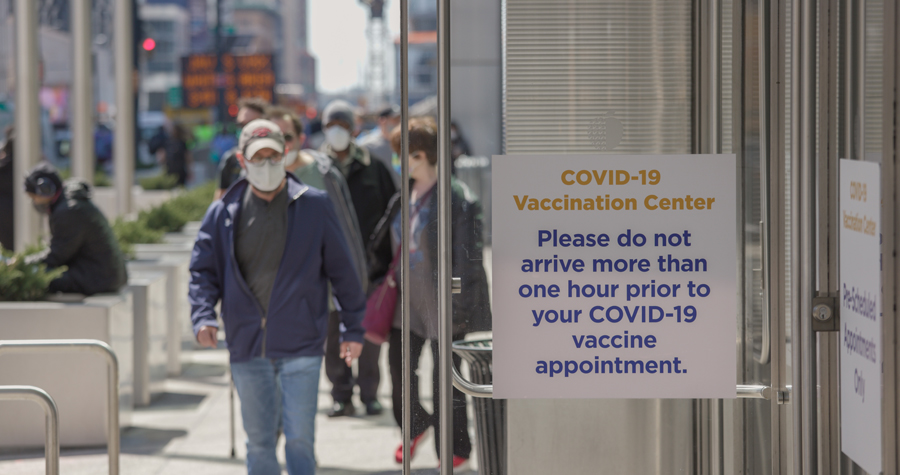As of April 19th, there are plans in place to make COVID-19 vaccination available to anyone (16 or older), anywhere in the United States. (1)
There are many ways to access a COVID-19 vaccine, from mass vaccination sites to private practices. Alternatively, you may be more comfortable going directly to a doctor’s office—in which case you should make sure to establish care with a primary care physician.
Regardless of how or where you get the vaccine, your next question is likely regarding which vaccine you should get.
In this article, you’ll learn about each of the three vaccines currently being administered in the United States, along with information on how they work, what “vaccine efficacy” or “effectiveness” means, and what doctors have to say about the vaccination efforts.
What vaccines are available in the United States and how do they work?
There are currently three vaccines being used in the US vaccination effort. They are:
- Pfizer-BioNTech COVID-19 Vaccine—In clinical trials, the Pfizer-BioNTech vaccine was 95% effective “in preventing the COVID-19 virus with symptoms.” Approved for those 16 and over, this vaccine requires two doses to be given 21 days apart. The second dose can be given up to six weeks after the first.
- Moderna COVID-19 Vaccine—Clinical trials of the Moderna vaccine showed 94% effectiveness in preventing symptomatic cases of COVID-19. It’s been studied in people 18 and older, and requires two shots 28 days apart. Again, the second dose can be given up to six weeks after the first.
- Janssen/Johnson & Johnson COVID-19 Vaccine—This vaccine was 66% effective at preventing symptomatic cases of COVID-19, and 85% effective at preventing cases of severe disease. Also tested in people 18 and older, this vaccine only requires one dose and can be stored at higher temperatures, making it more accessible to the broader population. The FDA recommended its distribution be paused on April 13th as they investigated some cases of blood clots among the 7 million people who had received the vaccine in the United States. (2)
 The main differences between these three shots are the mechanisms by which they produce a response from your body.
The main differences between these three shots are the mechanisms by which they produce a response from your body.
As explained by the Mayo Clinic, viruses like COVID-19 (“coronaviruses”) “have a spike-like” structure on their surfaces known as an S protein. The Pfizer and Moderna vaccines use something called messenger RNA (mRNA) to give your body’s cells “instructions for how to make a harmless piece of an S protein.” (2)
After you’ve been vaccinated, your body starts producing this S protein. Your immune system then recognizes that the S protein doesn’t belong, and this stimulates the production of antibodies. (2)
The Janssen/Johnson & Johnson vaccine is a “vector vaccine.” It takes some gene material from COVID-19, inserts it into a different type of “weakened live virus”—the “viral vector”—which will get into your cells and give them instructions to make “copies of the S protein.” Then, your immune system responds by forming antibodies and white blood cells which attack the COVID-19 virus if you contract it. (2)
It’s important to remember two things:
- Viral vector vaccines “can’t cause you to become infected” with either COVID-19 or the vector virus used in the vaccine.
- While all three shots deliver genetic material, it cannot amalgamate with nor alter your DNA. (2)

Understanding vaccine efficacy
As the COVID-19 pandemic has progressed, there’s been plenty of public discussion around questions that are usually confined to the pages of textbooks and scientific journal articles. One of the most prevalent being: what exactly does vaccine efficacy or effectiveness measure?
The efficacy of a vaccine measures how well it works in a clinical trial. The population in a trial is carefully selected, and intentionally doesn’t reflect the general population to explicitly exclude vulnerable people. On the contrary, effectiveness reflects its performance in the real world. (3)
In a clinical trial, efficacy is determined by calculating the so-called “risk of disease” between both vaccinated and unvaccinated people and comparing them to calculate the percentage reduction in risk of disease. (4)
There were 170 total cases of COVID among those in the Pfizer-BioNTech vaccine clinical trial. Eight of those cases were in the vaccinated group, and the rest (162) were in the control group. If you divide eight by 170, you’ll get around 5%—that’s where the 95% efficacy number for the vaccine comes from. (3)
What’s worth remembering is that this does not mean that if you get the Pfizer-BioNTech vaccine, you’ll only have a 5% chance of getting COVID. To calculate the effectiveness of a vaccine in the general population, you need to track what happens when the vaccine is used in the “field.” (3)
As outlined by the CDC, that calculation can be understood as follows:
Risk among unvaccinated group – risk among vaccinated group / Risk among unvaccinated group
Once enough time has passed, scientists will be able to look at data from the general population to determine how much disease has been reduced by the vaccines. (4)
What’s the takeaway?
The main point many have taken from the higher efficacy rates of the Moderna and Pfizer-BioNTech vaccines in their respective clinical trials is that they are the best options available. The trouble, according to experts like Dr. Leana Wen—a visiting professor at George Wahington University and a medical analyst for CNN—is that this “is not the right comparison.” (5)
The three vaccines were studied at different points in time, and in different places. For example, the Pfizer and Moderna vaccines were studied before the rise of COVID-19 variants that have become a more recent concern. Meanwhile, the Johnson & Johnson vaccine was studied in South Africa at a time when the predominant variant was B.1.351, against which many scientists think all the vaccines are less effective. (5)
What Dr. Wen and others have emphasized is that all three vaccines have performed very well when it comes to the number of cases of severe disease among those who’ve been fully vaccinated. (5)
Conclusion
As you consider how to protect yourself and others from COVID-19, talk to your doctor about vaccination.
Your primary care physician can help explain what’s available to you in your area. They’ll also have the best ability to advise you on the right course of action, based on your own medical history and the specifics of the vaccine roll-out in your state.
References:
- “See How the Vaccine Rollout Is Going in Your County and State,” Source: https://www.nytimes.com/interactive/2020/us/covid-19-vaccine-doses.html
- “COVID-19 vaccines: Get the facts,” Source: https://www.mayoclinic.org/diseases-conditions/coronavirus/in-depth/coronavirus-vaccine/art-20484859
- “Which COVID Vaccine Is ‘Best’? Why Do Some People Have Side Effects? Experts Answer These Questions and More,” Source: https://www.scientificamerican.com/article/experts-answer-the-biggest-covid-vaccine-questions1/
- “Lesson 3: Measures of Risk,” Source: https://www.cdc.gov/csels/dsepd/ss1978/lesson3/section6.html
- “Which Covid-19 vaccine should I get? Dr. Wen weighs in,” Source: https://www.cnn.com/2021/03/02/health/covid-vaccine-comparison-wen-wellness/index.html


